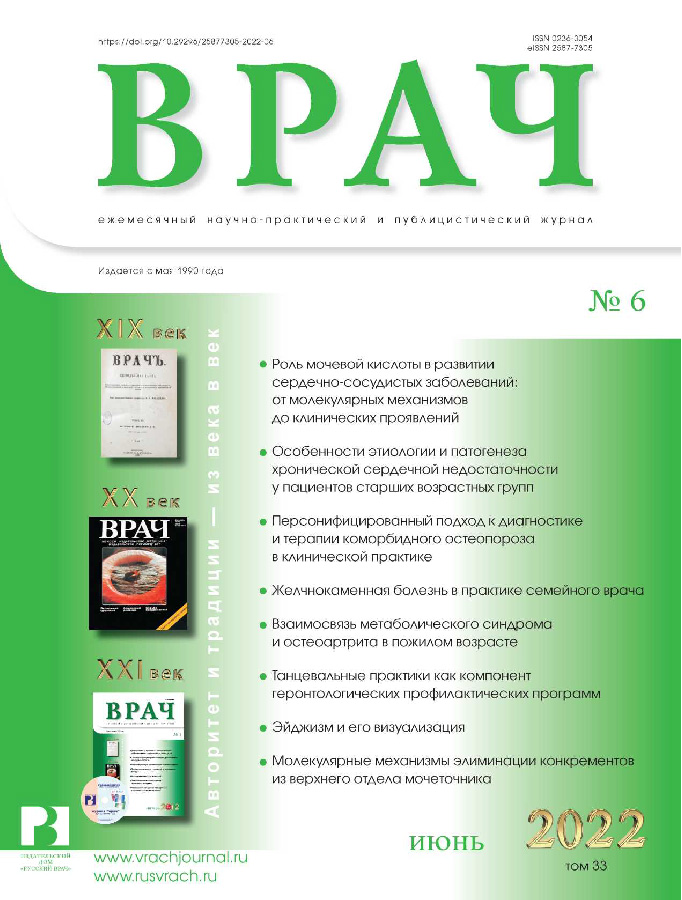Development of a diagnostic panel of biomarkers for predicting the survival rate of dental implants in patients of older age groups
- Authors: Polyakova A.A.1, Medvedev D.S.2, Polyakova V.O.3,4
-
Affiliations:
- Saint Petersburg State Pediatric Medical University, Ministry of Health of Russia
- Research Institute of Hygiene, Occupational Diseases and Human Ecology, Federal Biomedical Agency of Russia
- Saint Petersburg Research Institute of Phthisiopulmonology, Ministry of Health of Russia
- Belgorod State National Research University
- Issue: Vol 33, No 6 (2022)
- Pages: 83-87
- Section: From Practice
- URL: https://journals.eco-vector.com/0236-3054/article/view/114643
- DOI: https://doi.org/10.29296/25877305-2022-06-16
- ID: 114643
Cite item
Abstract
The development of a diagnostic panel of biomarkers to improve the survival rate of dental implants is an urgent scientific and applied problem. The recovery rate for bone tissue innervation and vascularization is one of the important criteria for the success of implantation. Objective. To develop a diagnostic panel of biomarkers to assess the success of implantation in patients of older age groups Subjects and methods. The buccal epithelium was investigated in people of different ages. The sample size was 210 patients (5 age groups) and 420 observations (before and after implantation). Results. It was found that with increasing age, there were significant decreases in the expression level of the vascularization markers VEGF, VEGFR1 before implantation and in the level of the marker for the rate of innervation recovery in the implantation zone of NO synthase before and after implantation. After implantation, the level of VEGFR1 expression decreased in all studied groups; that of VEGF expression increased in all the groups, except for the group of long-livers, in whom the level of VEGF reduced after implantation compared to that before implantation. Conclusion. This investigation makes it possible to approach the solution of the problem of creating a differential diagnostic model to predict the survival rate of implants and to choose a habilitation method. The development and implementation of a diagnostic panel of biomarkers will be able to proceed to personalized medicine, high-tech healthcare, and health-saving technologies.
Full Text
About the authors
A. A. Polyakova
Saint Petersburg State Pediatric Medical University, Ministry of Health of Russia
Author for correspondence.
Email: aapol13@yandex.ru
D. S. Medvedev
Research Institute of Hygiene, Occupational Diseases and Human Ecology, Federal Biomedical Agency of Russia
Email: aapol13@yandex.ru
Professor
V. O. Polyakova
Saint Petersburg Research Institute of Phthisiopulmonology, Ministry of Health of Russia; Belgorod State National Research University
Email: aapol13@yandex.ru
Biol.D; Professor of the Russian Academy of Sciences
References
- Бойчук Н.В., Челышев Ю.А. Гистология органов полости рта: учебно-методическое пособие. Казань: КГМУ, 2011; 96 с.
- Быков В.Л. Функциональная морфология эпителиального барьера слизистой оболочки полости рта. Стоматология. 1997; 76 (3): 12-7.
- Быков В.Л. Тканевая инженерия слизистой оболочки полости рта. Морфология. 2010; 137 (1): 62-70. Bykov V.L. Tissue engineering of the oral mucosa. Morfologiya. 2010; 137 (1): 62-70 (in Russ.).
- Ортопедическая стоматология: учебник. Под ред. И.Ю. Лебеденко, Э.С. Каливраджияна. М.: ГЭОТАР-Медиа, 2016; 640 с.
- Пальцев М.А., Кветной И.М., Полякова В.О. и др. Сигнальные молекулы в буккальном эпителии: оптимизация диагностики социально значимых заболеваний. Молекулярная медицина. 2012; 2: 18-23.
- Полякова А.А. Метод клеточной биологии в реализации клинических задач: оценка приживаемости имплантов у пожилых пациентов. В. кн.: VIII Международная научно-практическая конференция молодых ученых: биофизиков, биотехнологов, молекулярных биологов и вирусологов - 2021. Сб. тез. конф., проход. в рамках площадки открытых коммуникаций OpenBio-2021. Новосибирск, 2021; с. 324.
- Полякова В.О., Пальцева Е.М., Крулевский В.А. Буккальный эпителий. Новые подходы к молекулярной диагностике социально значимой патологии. СПб: Изд-во Н-Л, 2015.
- Симаненков В.И., Маев И.В., Ткачева О.Н. и др. Синдром повышенной эпителиальной проницаемости в клинической практике. Мультидисциплинарный национальный консенсус. Кардиоваскулярная терапия и профилактика. 2021; 20 (1): 2758. doi: 10.15829/17288800-2021-2758
- Шахбазов В.Г., Григорьева Н.Н., Колупаева Т.В. Новый цитобиологический показатель биологического возраста и биологического состояния организма человека. Физиология человека. 1996; 22 (6): 71-5.
- Carbone A., Linkova N., Polyakova V. et al. Melatonin and Sirtuins in Buccal Epithelium: Potential Biomarkers of Aging and Age-Related Pathologies. Int J. Mol Sci. 2020; 21 (21): 8134. doi: 10.3390/ijms21218134
- Polyakova A., Medvedev D., Semiglazova J. et al. Buccal epithelium: as an object of non-invasive diagnostics of implant survival in people of different ages. Eur J. Clin Invest Suppl. 2021; 51 (S1): 123-4.
- Saba R., Halytskyy O., Saleem N. et al. Buccal Epithelium, Cigarette Smoking, and Lung Cancer: Review of the Literature. Oncology. 2017; 93 (6): 347-53. doi: 10.1159/000479796
Supplementary files










